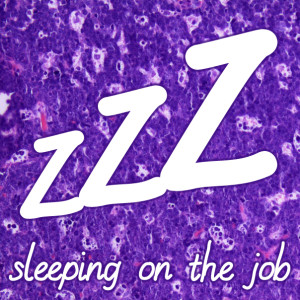A tendency to form associations and live in patterns is an undeniable part of being human. The great majority of people wake up each morning and follow a routine. When used correctly, this life on repeat increases efficiency, creates a personal comfort zone, and stabilizes health and well-being. However, our habit-forming tendencies can’t be turned on and off as we please, and poor associations form just as quickly as good ones. As phrased by Ralph Waldo Emerson, “Sow a thought, and you reap an act; sow an act, and you reap a habit.”
For medical students, there is nowhere this concept applies more than to our associations with sleep. Long hours hitting the books, demanding schedules and competitive careers can all make it hard to turn off at night. As a result, we tend to experience sleepless nights; and for some, these nights turn into weeks, months or even years.
You’ve undoubtedly heard about the importance of “sleep hygiene,” and maybe you’re skeptical like I was. But despite my skepticism, I gave it a shot after a couple of sleepless weeks when I was stuck in a cycle of sleep deficiency-induced anxiety. The results of good sleep hygiene were surprising. So I thought I’d share what worked for me. Maybe it will help you, too.
First, don’t patrol your thoughts. This might be the single best piece of sleep advice I ever received. In the moments after your head hits the pillow, allow your thoughts to wander. Patrolling your conscious to avoid thoughts about sleeping will very likely deprive you of sleep. Trying to avoid other “off limit” topics likewise stimulates your intellect and causes more delay to sleep than drowsiness. Falling asleep is anything but a forced “turn off,” and such an approach only prevents sleep. Ironically, if you must channel your thoughts, sleep therapists recommend trying to stay awake as a form of self-directed reverse psychology that relieves your mind on patrol.
Second, try stimulus control. If you’re a couple weeks into a poor sleep cycle, you’ve probably formed associations that would benefit from this technique. This means leaving the bedroom after 20 minutes of unsuccessful sleep and engaging in a relaxing activity, such as reading or listening to soothing music. Upon feeling drowsy, return to the bedroom to attempt to sleep again. Repeat as necessary. Such an approach breaks the cycle of sleep anxiety and the perpetuation of disturbed sleep cycles.
Finally, other tried and tested techniques include maintaining a regular sleep schedule, avoiding naps, only using your bed for sleep, getting out of bed upon awakening, and exercising daily. You may also need to adjust your bedroom to make it conducive to sleep. In particular, always place your alarm clock out of sight to avoid tracking time.
Who knows, maybe after reading this column you feel a little drowsy. If so, I’m glad I could help out!
There are very few settings in which a good night’s rest is more important than in medicine. It is vital for patients’ in recovery as well as for those entrusted with their care. Here’s some advice from a fellow medical student on ways to enhance sleep for patients and in each phase of medical training.

